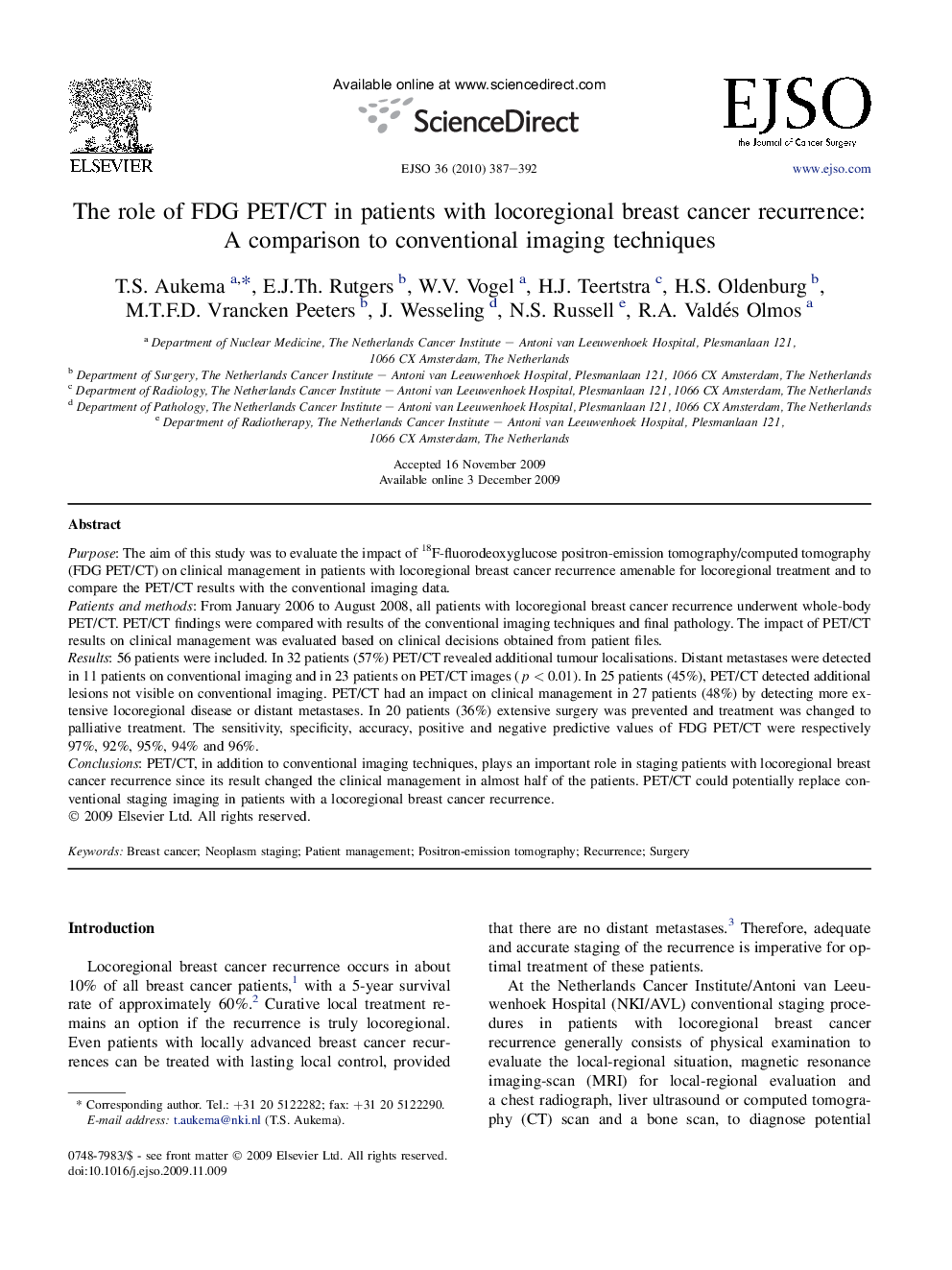| Article ID | Journal | Published Year | Pages | File Type |
|---|---|---|---|---|
| 3987708 | European Journal of Surgical Oncology (EJSO) | 2010 | 6 Pages |
PurposeThe aim of this study was to evaluate the impact of 18F-fluorodeoxyglucose positron-emission tomography/computed tomography (FDG PET/CT) on clinical management in patients with locoregional breast cancer recurrence amenable for locoregional treatment and to compare the PET/CT results with the conventional imaging data.Patients and methodsFrom January 2006 to August 2008, all patients with locoregional breast cancer recurrence underwent whole-body PET/CT. PET/CT findings were compared with results of the conventional imaging techniques and final pathology. The impact of PET/CT results on clinical management was evaluated based on clinical decisions obtained from patient files.Results56 patients were included. In 32 patients (57%) PET/CT revealed additional tumour localisations. Distant metastases were detected in 11 patients on conventional imaging and in 23 patients on PET/CT images (p < 0.01). In 25 patients (45%), PET/CT detected additional lesions not visible on conventional imaging. PET/CT had an impact on clinical management in 27 patients (48%) by detecting more extensive locoregional disease or distant metastases. In 20 patients (36%) extensive surgery was prevented and treatment was changed to palliative treatment. The sensitivity, specificity, accuracy, positive and negative predictive values of FDG PET/CT were respectively 97%, 92%, 95%, 94% and 96%.ConclusionsPET/CT, in addition to conventional imaging techniques, plays an important role in staging patients with locoregional breast cancer recurrence since its result changed the clinical management in almost half of the patients. PET/CT could potentially replace conventional staging imaging in patients with a locoregional breast cancer recurrence.
